In-vitro fertilization, also known as IVF, has been a lifesaver for couples who are infertile in India and looking to begin the next generation. IVF is an ART method where a woman’s egg is combined with her partner’s sperm to create a healthy Embryo that supports a positive pregnancy. Fertilityworld has achieved a maximum IVF success rate of over 85% in self-cycle and 99% using Donors in all our centers in Pan India. Our doctors have 30+ years of experience and research in the fertility field has created miracles for multiple failure IVF cases. The Clinic is located below cities, Choose your nearest.

- Award-winning fertility specialist Dr Nidhi Sharma.
- Book an online Appointment: Get a Free IVF consultation:
- Call/WA +91 9311850412 Email: info@fertilityworld.in

The results of the success of an IVF procedure vary between couples and from one doctor to the next. This is why you must locate the most reliable fertility Experts across India. Several factors determine the rate of success for IVF. IVF process for IVF treatment in India can be determined by a variety of variables, as given below:
- The female partner’s age.
- The duration that infertility lasts.
- Forms of Infertility (primary or second)
- Cause of infertility
- The egg, sperm, and embryo’s qualities
- The development of the endometrium
- Post-transfer luteal process
In India, IVF’s success rate varies between 75-90%, based on the factors mentioned above. In younger women, the IVF result is approximately 90% in India. Women younger than 35 have a greater chance of success than women. The success rate of this most commonly used assisted reproductive technology, known as ART, is usually determined by the number of live births for each embryo transfer. The live birth rate is the number of live births for each embryo transferred.
What is the best way to improve the IVF rate of success?
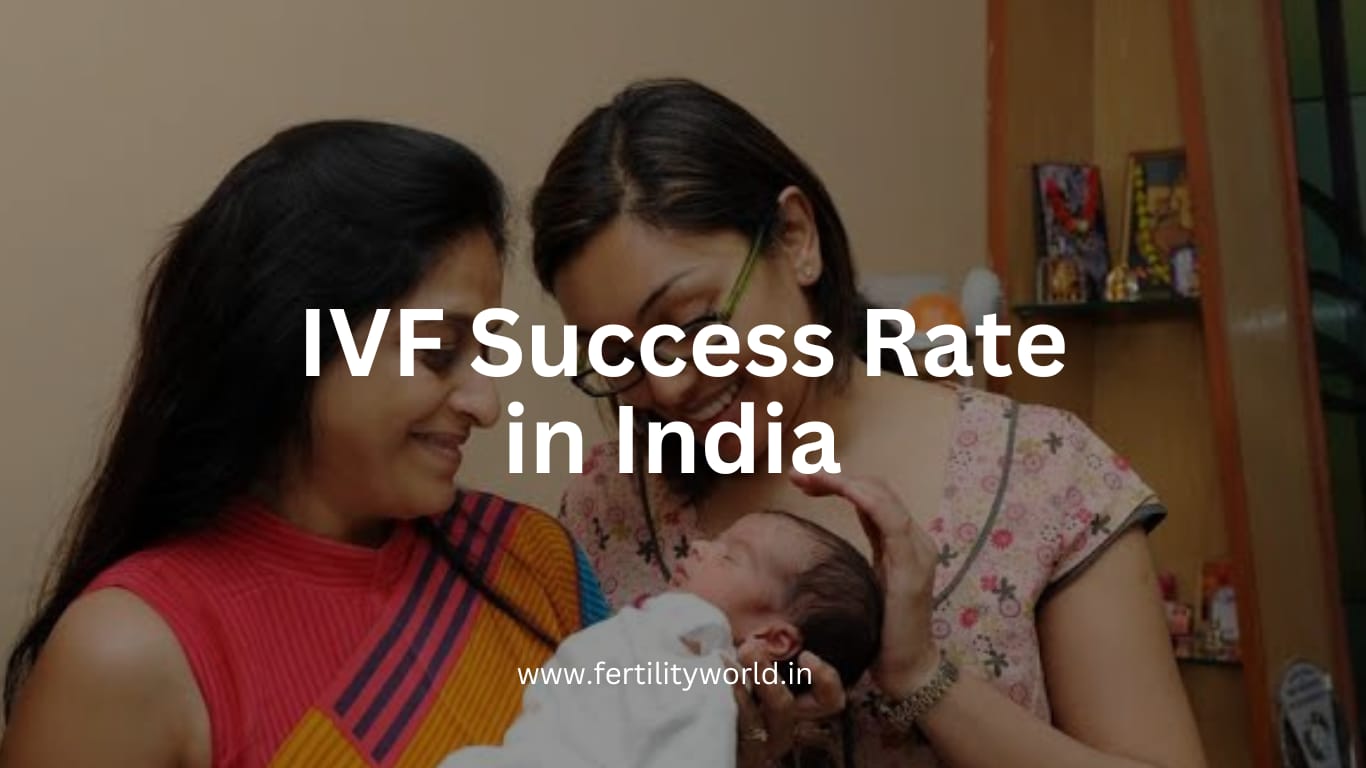
The majority of clinics are now using the “freeze all” procedure, where embryos produced using IUI, ICSI, or traditional IVF are frozen instead of eggs. IVF results in India have increased dramatically due to the advancement of reproductive technology. Endometrial Receptivity Analysis (ERA) is a method that analyzes the endometrium on the molecular level. It may help you in cases of persistent implantation failure.
If the conventional IVF treatment isn’t helping it is recommended to opt for ICSI. ICSI procedure. IntraCytoplasmic Sperm Injection (ICSI) is a subset of IVF that may be the answer. One sperm is taken up and then inserted directly into the egg using a needle of fine glass in a laboratory.
How can you optimize the chances of success in IVF?
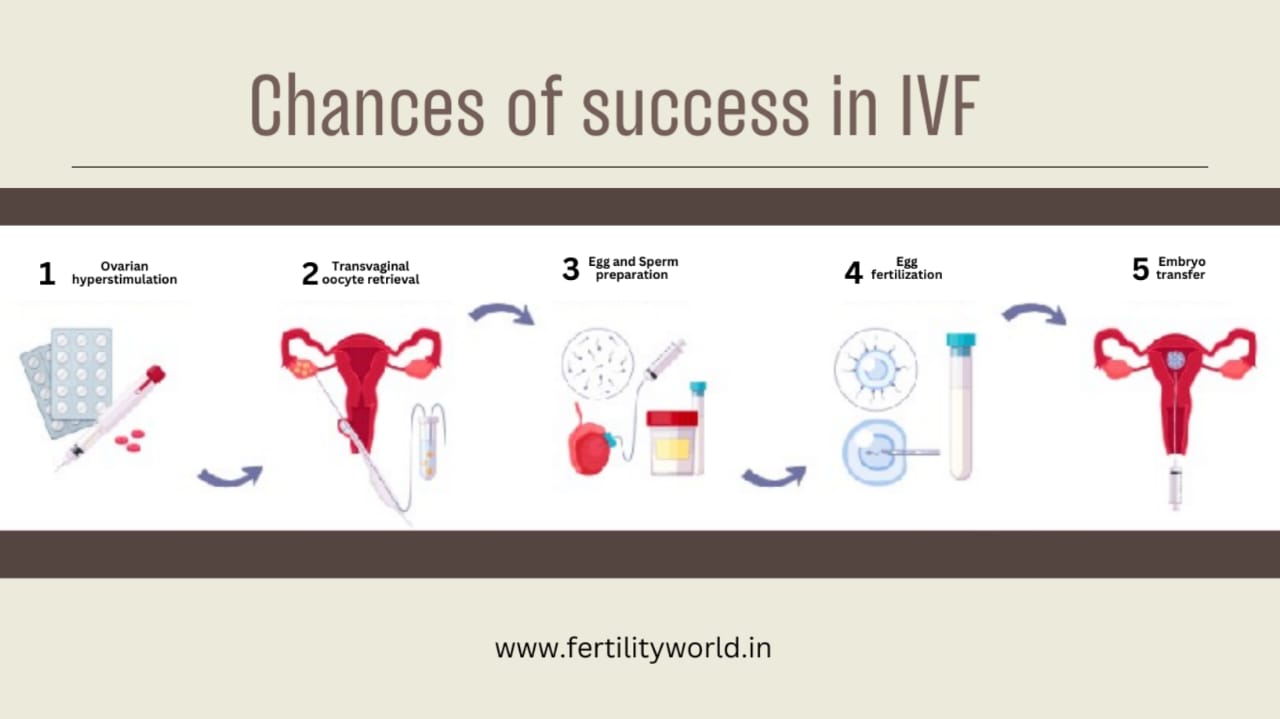
In the course of IVF treatment, there are many challenges that you have to overcome. You may need to undergo tests and screenings to ensure you have the best chance of success. Let’s look at some natural methods to increase IVF’s success rate.
Be sure to live a secure lifestyle
If you’ve been trying to get pregnant then you must try to keep a healthy lifestyle. This can be achieved by following methods:
- Reduce your smoking and drinking alcohol.
- Include healthy foods in your diet.
- Training to keep your body at a healthy weight. It is recommended to avoid intense workouts however as it could alter your fertility.
- If you’re overweight add foods to your diet to help gain weight safely and healthily.
- Get how you consume food
A diet that is not healthy can affect the quality of your eggs or sperm. If you are a fan of starchy and sugary food It is the right time to cut down. It is also possible to cut back on, or even, eliminate the consumption of unprocessed foods, grains that are refined caffeinated drinks, and canned food items. Instead, you should eat fresh vegetables and fruits, complete grains, monounsaturated fats, lean protein, legumes, and dairy products with low fat.
IVF Success Supplements
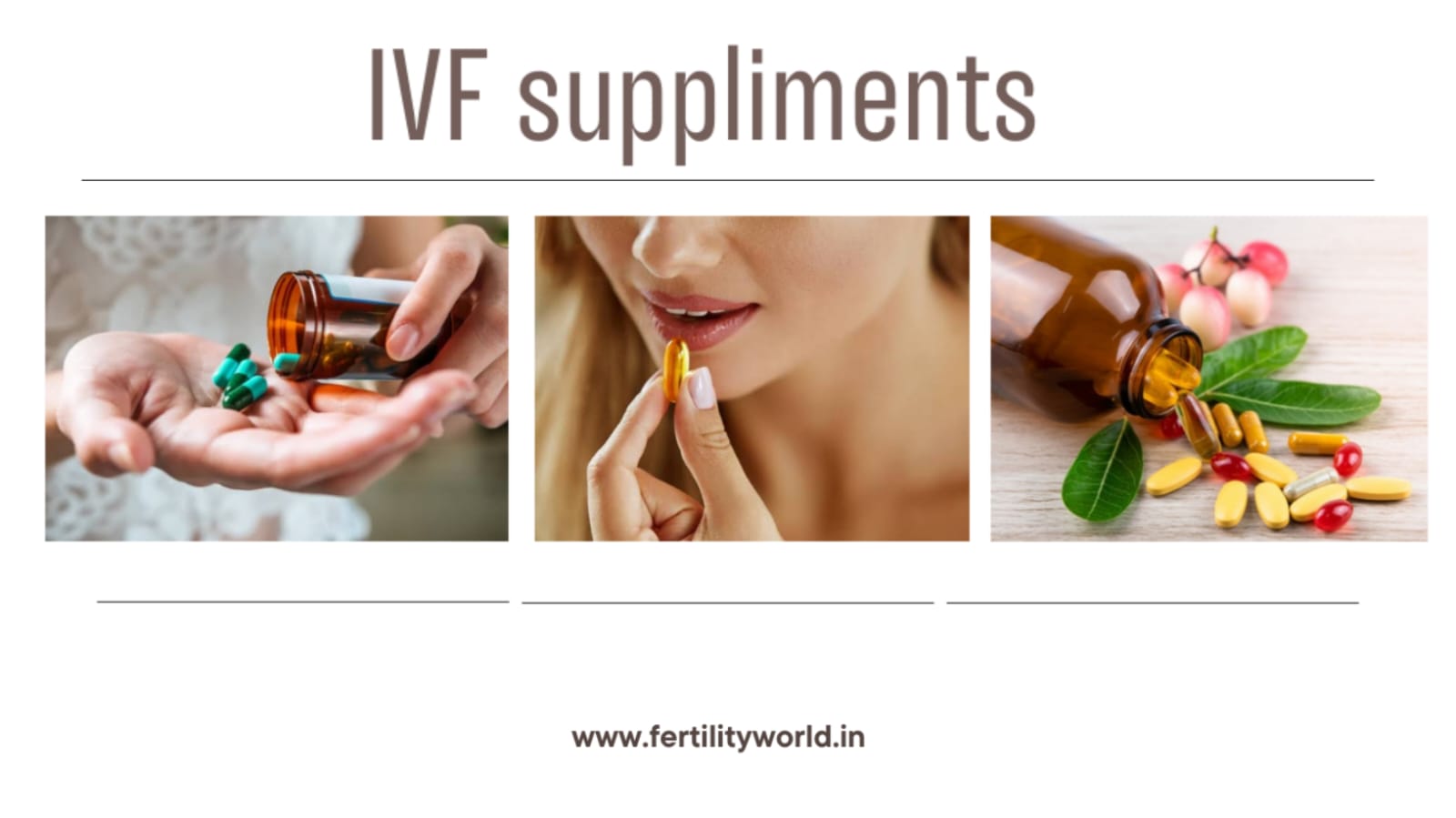
There are times when you cannot get all the calories you need from fruits. It is necessary to supplement your diet at this point. Folic acid and calcium, omega-3 fatty acids selenium, vitamins, and omega-3 fatty acids are a few of the supplements which can aid with IVF performance. Your doctor will advise you on the supplements you require.
- Unwind and relax
The various fertility treatments you’ve tried could have affected your mental well-being. Stress is detrimental to your fertility, therefore you should de-stress and practice meditation often. Find a spot in which you can unwind and unwind. You can also refresh if you require some time off.
- Ejaculation is not recommended.
The men who will be making sperm donations should not engage in masturbation or engage in sexual activity for at least 3-4 weeks before the procedure. This can help increase the number of sperm and also the quality of sperm.
The health of your physical and mental well-being can affect your chance of being pregnant. Additionally, IVF can take a strain on your mental health, so you should be prepared for this time in your life. Discuss your hopes and fears with an experienced counselor. Make sure that your partner, family members, and other loved ones are supporting your efforts. These are a few tips you can follow to increase your chances of an effective IVF treatment.
Factors that are Responsible for IVF Success Rates
Reproductive medicine is an ever-changing field that strives to improve the success rate. IVF has been responsible for the birth of more than six million baby girls around the world, new technologies are constantly emerging and the success rates continue getting better. Rates of success with IVF treatment even though they are high, can’t be 100 percent always. The rate of win is dependent on many external and internal variables
Internal elements:
The couple’s age and the kind of Infertility
- External factors:
- Lifestyle aspects
- Laboratory Quality
- Expertise and experience of the Clinician and embryologist
1. The couple’s age:
Age is a factor that affects fertility like any other way. Advancing the age of a woman has an impact on the amount and quality of the available oocytes. A majority of the embryos made from oocytes from women who are older than 42 are classified as aneuploidy, or chromosomally abnormal. The IVF success rate dramatically drops when the woman is over 35 years old.
Rates of success are
- 80-95% when the woman is younger than 35.
- 70% percent – 35 to 37 years
- 60% – 38-40 years
- 40% in 40-42 years
- 20 % of women over 43 years
The aging of the father also affects fertility because it affects the quality of the sperm, by causing damage to the Sperm DNA, thereby reducing the capacity to fertilize as well as the quality of embryos. Damage to the Sperm DNA is greatly higher in men who have reached 45 years old.
2. The problem of Type of Fertility
The most crucial factor that determines the success of IVF is the reserve of the ovarian lining. The greater the number of Follicles that are available, the greater the quantity of Oocytes produced which results in more excellent success rates. Women with low reserve produce fewer Oocytes. 3 oocytes are considered to be an ovarian response that is less than optimal which can affect the success rates
The low reserve can be the result of aging or a condition such as endometriosis, surgical treatment on the ovaries or ovaries, genetic or chromosomal issues, or exposure to chemotherapy and Radiotherapy. The success rates are extremely high and can be as high as 90% when infertility occurs just due to tubal factors or low sperm count. The rates of success for a woman are affected when there are multiple causes. The more factors that contribute to infertility, the lower the rates of success. Rates of success decrease when the patient is afflicted with multiple fibroids close to the cavity or adenomyosis. Both these variables can impact the procedure of implantation.
External Factors
1. Lifestyle-related factors
Obesity
Obesity in males, as well as females, is known to affect the gamete quality. It may also impact the way that the body reacts to fertility drugs, and very high doses of gonadotropins might be required to obtain the desired response. Obesity could cause difficulties in the process that can affect the yield of oocytes. It’s also known to influence the implantation process and is linked to the increased risk of miscarriage
Smoking cigarettes has severe reproductive implications for females and males. The male sperm from smokers has been discovered to be less fertile and the embryos derived from that sperm have lower implant rates. For female smokers, the aging process of the ovaries is more rapid and their uteruses are less responsive. In general, the result for IVF cycles was proven to be more severe for women who smoke, and who might require more than twice the number of IVF cycles to be pregnant.
2. Laboratory Quality
IVF labs play a vital role in determining success rates. After all, gametes must be kept in a protected and controlled environment, just like the human body has unique requirements. * Microorganisms like bacteria or fungi could cause harm to developing embryos, therefore good air quality is essential. Particularly designed Heating, Ventilating as well as Air Conditioning (HVAC) equipment fitted with charcoal filters as well as High-Efficiency Particulate (HEPA) filters for air as well as sufficient air pressure to change the air in the room at least 20 times per hour is commonplace.
* Temperature and light In the initial few days and hours of development both of these elements are essential. The goal is to keep embryos at the right temperature and filtering UV light are two methods to reduce the stress that could harm growth. An IVF laboratory with the highest quality control, constantly monitored by regular audits of laboratory conditions and procedures will certainly help achieve the high chances of success.
3. Experience and expertise of the clinician/Embryologist
Well-experienced and qualified IVF clinicians/Andrologists are of utmost importance in optimizing the success rates as they can offer adjuvants, individualized protocols, and sperm selection methods based on the ovarian reserve and sperm parameters respectively. The success of IVF also depends on the optimal preparation of the endometrial lining and the ease of embryo transfer technique. However, quality embryos maybe if fail to implant if the uterine environment is unfavorable or when difficulty is encountered in embryo transfer. A well experienced can make a big difference in these areas.
The experience and qualification of the embryologist are essential in determining the rate of success rates. Minimal handling of embryos, and the speed, and ease of procedures such as ICSI embryo freezing, and thawing are crucial for high success rates. The less exposure to the embryos or gametes outside of the incubator the higher the rate of success. Each fertility journey is a bit uncertain, however, there are many things you and your fertility Clinic can accomplish to aid in IVF success.
SUCCESS RATE BY NUMBER OF EMBRYOS
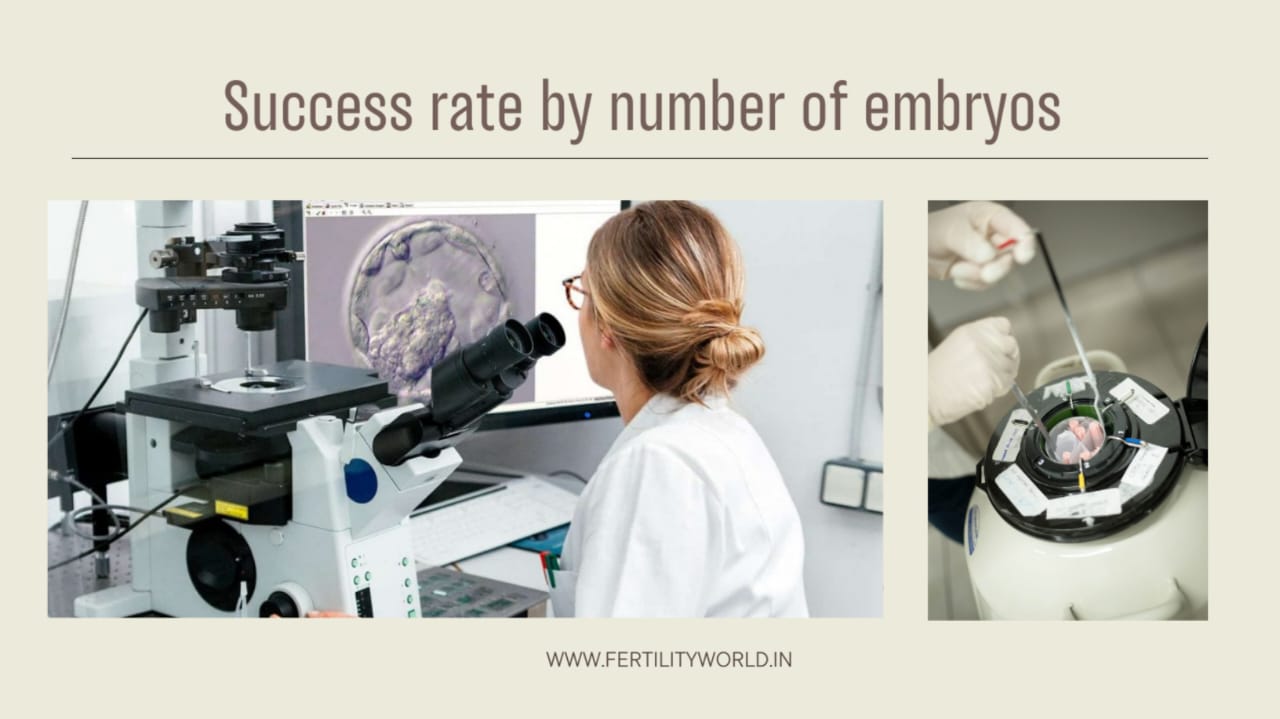
There are a variety of variables that affect the rate of success in IVF (in-vitro fertilization) treatment, but one of the primary elements that determine the rate of success is an embryo’s number, and how good the condition of an embryo is. The majority of failures in treatment are due to the poor quality of embryos utilized during the treatment.
Single vs. Multiple embryos
It is suggested that during IVF treatment, only one embryo transfer is thought to be safe for the result of the pregnancy. The most important thing for a mother’s health is that of her baby. Therefore, when we transfer multiple embryos, the chance of having twins as well as multiple births rises, with the risk factors for the baby increasing similarly. The success rate for one-embryo and multi-embryo transfers is similar. However, regardless of how many embryos are to be used for IVF, it is essential to consider the risk element.
In one study of “fertility research and practice,” it was calculated that the success rate for “single embryo transfer” was 85 percent, while the rate for “Double embryo transfer” was 60 percent. This indicates how likely it will be that the two embryos will be less or more alike to one another. Therefore, one embryo is more likely to be secure and have a sufficient quantity of embryos needed for IVF treatment.
What is the success rate of IVF in India?
The success rate of IVF in India varies depending on various factors, including the age of the female partner, duration of infertility, cause of infertility, and the quality of eggs, sperm, and embryos. In general, success rates range from 75-90% for women younger than 35, with rates decreasing with age.
How can the success rate of IVF be improved?
The success rate of IVF can be improved by optimizing various factors such as maintaining a healthy lifestyle, including dietary changes, supplements, stress reduction techniques, and avoiding harmful habits like smoking and excessive alcohol consumption.
What factors influence the success rate of IVF?
Several factors influence the success rate of IVF, including the age of the couple, the type of fertility issue (primary or secondary infertility), the quality of the laboratory where the procedure is performed, and the expertise of the clinicians and embryologists involved in the process.
Is single embryo transfer or multiple embryo transfer recommended for IVF?
While both single embryo transfer and multiple embryo transfer can be options in IVF, single embryo transfer is generally considered safer to reduce the risk of multiple pregnancies and associated complications. However, the decision depends on individual circumstances and should be discussed with a fertility specialist.
What role do lifestyle factors play in IVF success?
Lifestyle factors such as obesity, smoking, and excessive alcohol consumption can negatively impact IVF success rates. Maintaining a healthy weight, following a balanced diet, and avoiding harmful habits can improve the chances of a successful IVF outcome.
How does the experience of the fertility clinic and embryologist affect IVF success?
The experience and expertise of the fertility clinic and embryologist play a crucial role in IVF success. Experienced clinicians can offer individualized treatment plans, optimal embryo transfer techniques, and minimize handling of embryos, leading to higher success rates.
What are the success rates based on the number of embryos transferred?
Studies suggest that single embryo transfer is associated with higher success rates than multiple embryo transfers. While the success rate for single embryo transfer is around 85%, the success rate for double embryo transfer is approximately 60%, with an increased risk of multiple births.
What should couples consider when undergoing IVF treatment?
Couples undergoing IVF treatment should consider factors such as their age, overall health, lifestyle habits, reputation and success rate of the fertility clinic, as well as the financial and emotional aspects of the treatment process. Open communication with healthcare providers and realistic expectations are critical to a successful IVF journey.

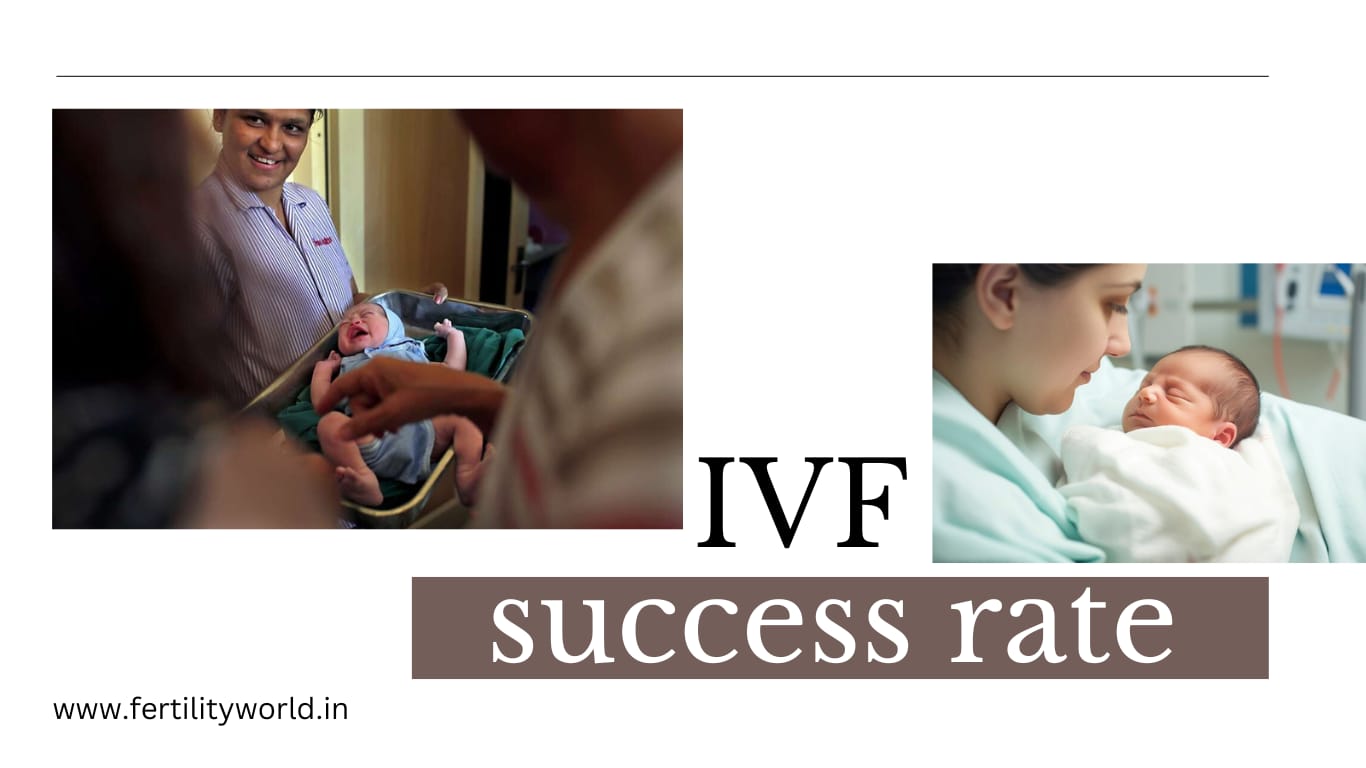
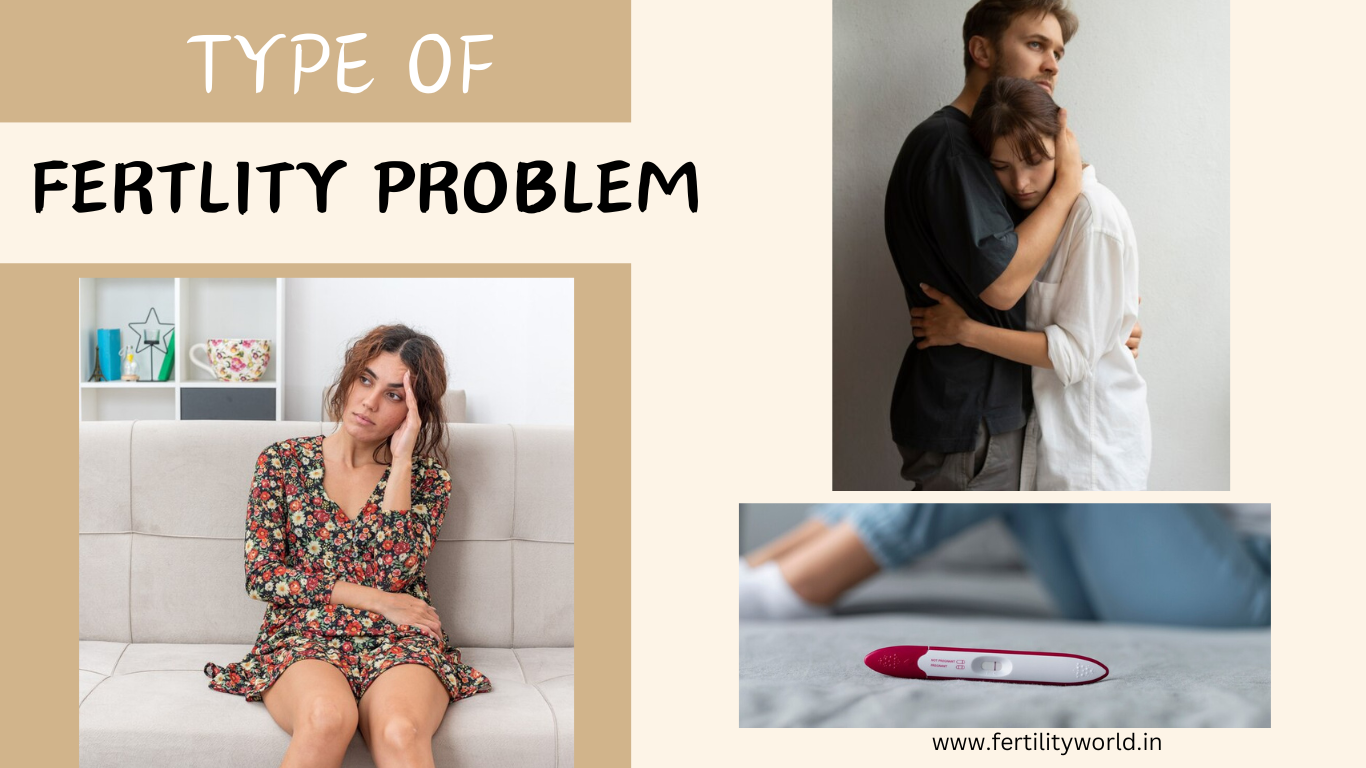


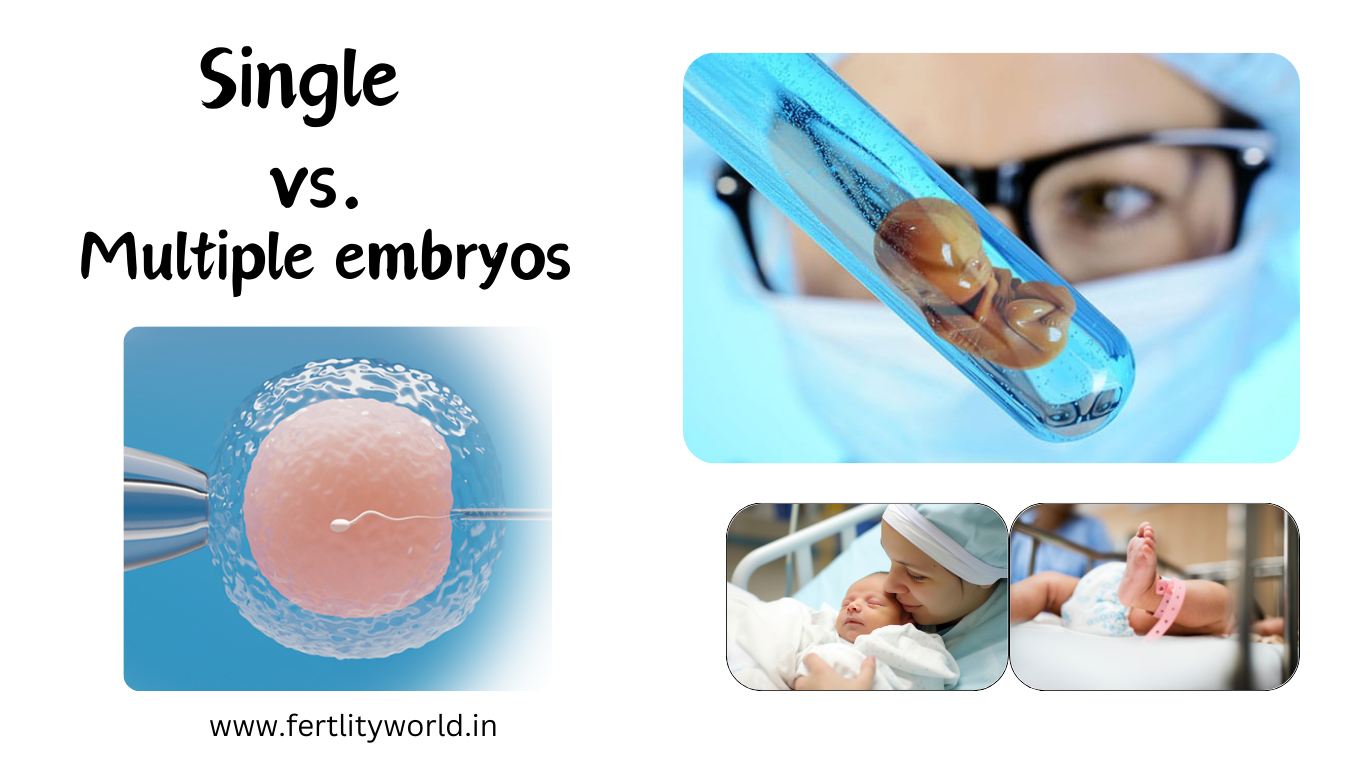

25 thoughts on “IVF Success Rate in India | IVF Success Rate by Age”